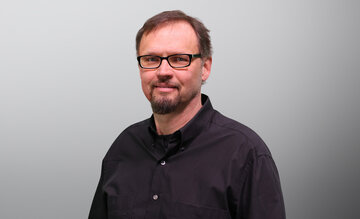The NorOvA "User-oriented optimisation of transport services" project, carried out in partnership between HFU and the Verkehrsbund Schwarzwald-Baar GmbH (VSB) (period 01.04.2019 to 31.10.2021), developed digital tools to survey and evaluate the mobility needs of specific user groups - also with a view to optimising existing transport services in local public transport.
As part of this project, an app for collecting movement data was developed, among other things, which made it possible to independently record actual mobility. The core of the app is the anonymous and privacy-compliant recording of movement data (route recognition). By analysing this data, conclusions can be drawn about the existing public transport services as well as the need for sharing services and carpooling, and more suitable services can then be developed and gaps closed.
In addition to the NorOvA app, a separate analysis tool was developed as well as the NorOvA bus tracking app.
Through the developed core elements, analysis possibilities were developed as a basis for insights into the modal split, or for example the evaluation of arbitrary routes, the detection of streets with high traffic load and the presentation of regularities. In general, speed, position and the derived movement profile act as criteria for modal recognition. This can be done by taking into account actual data for planning and analysis, thus offering high transferability to other (rural) areas and avoiding non-user oriented planning.
NorOvA is a demonstrator project and brings a high transferability to other, especially rural areas. The developed tools serve as a flexible open-source data source in the field of public transport and the tools can be widely used to identify mobility needs, especially by individual public transport passengers, businesses, transport companies and municipalities.
